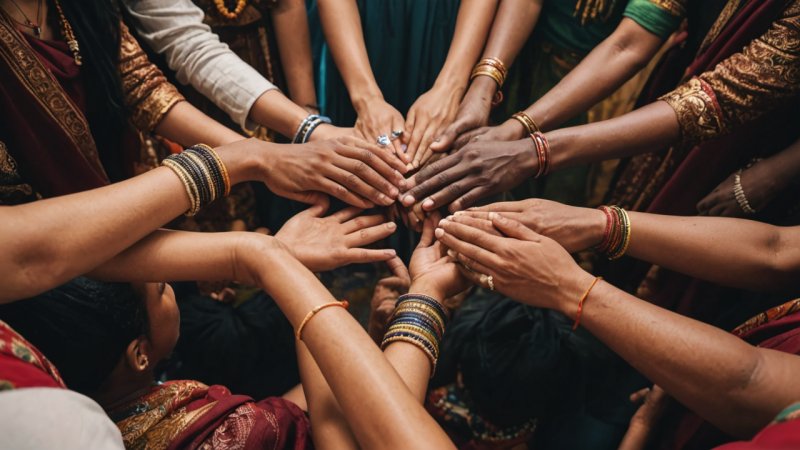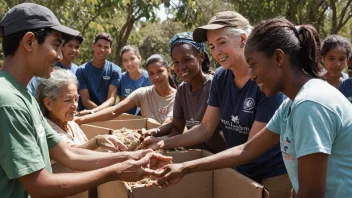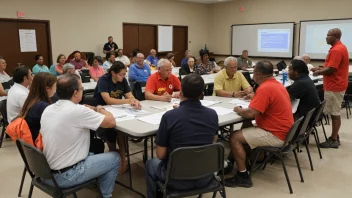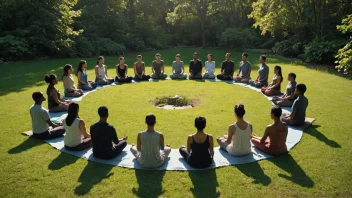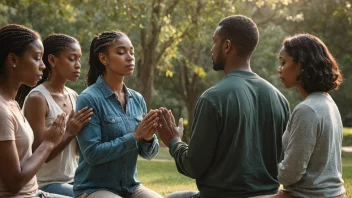Spiritual traditions have long served as the backbone of community identity, providing individuals with a sense of belonging, purpose, and connection to something greater than themselves. In an increasingly globalized world, where cultural homogenization threatens to erase unique local customs, the importance of maintaining and celebrating spiritual traditions cannot be overstated. These practices, beliefs, and rituals not only enrich individual lives but also foster a collective identity that binds communities together. This article explores the multifaceted role of spiritual traditions in strengthening community identity, examining their impact on social cohesion, cultural preservation, and personal wellbeing.
Understanding Spiritual Traditions and Community Identity
At their core, spiritual traditions encompass the beliefs, practices, and rituals that individuals or groups engage in to connect with the divine or the universe. These traditions can be rooted in organized religions or be more fluid, emerging from local customs, folklore, and ancestral wisdom. Community identity, on the other hand, refers to the shared sense of belonging and collective consciousness that emerges when individuals within a community identify with similar values, beliefs, and practices.
The interplay between spiritual traditions and community identity is profound. Spiritual practices often provide a framework through which community members can express their values and beliefs, creating a cohesive narrative that reinforces their collective identity. In essence, spiritual traditions are not just personal journeys but communal experiences that help shape the identity of a community.
The Role of Spiritual Traditions in Social Cohesion
Social cohesion refers to the bonds that unite members of a community, fostering trust, cooperation, and a sense of belonging. Spiritual traditions play a pivotal role in enhancing social cohesion through various mechanisms:
Shared Rituals and Practices
Participating in shared rituals and practices, such as religious ceremonies, seasonal festivals, or communal prayers, fosters a sense of unity among community members. These activities provide opportunities for individuals to come together, share experiences, and reinforce their collective identity. For example, communal feasts during religious holidays not only celebrate spiritual beliefs but also strengthen interpersonal relationships within the community.
Common Values and Beliefs
Spiritual traditions often embody a set of shared values and ethical principles that guide community behavior. These values, which may include compassion, justice, and respect for the environment, provide a moral framework that encourages cooperation and mutual support. When community members align themselves with these common values, it fosters a sense of solidarity and belonging.
Conflict Resolution and Healing
Spiritual traditions often include practices for conflict resolution and healing, promoting forgiveness and reconciliation. In communities where tensions may arise due to differences in beliefs or social issues, spiritual teachings can offer guidance on how to navigate conflicts and restore harmony. By emphasizing the importance of community over individual grievances, spiritual traditions can help heal divisions and reinforce social cohesion.
Cultural Preservation Through Spiritual Traditions
In addition to fostering social cohesion, spiritual traditions play a crucial role in preserving cultural heritage. As globalization continues to influence local customs, the importance of maintaining unique spiritual practices becomes even more pronounced.
Transmission of Knowledge and Wisdom
Spiritual traditions often carry with them a wealth of knowledge and wisdom accumulated over generations. Elders within communities serve as custodians of this knowledge, passing it down through storytelling, rituals, and teachings. By engaging with these traditions, younger generations can connect with their cultural roots, ensuring that valuable insights and practices are not lost over time.
Celebration of Diversity
Spiritual traditions contribute to the rich tapestry of cultural diversity in society. Each tradition offers unique perspectives, practices, and beliefs that contribute to a more inclusive understanding of humanity. By celebrating and respecting different spiritual traditions, communities can foster an environment of mutual understanding and appreciation, enriching their collective identity.
The Impact of Spiritual Traditions on Personal Wellbeing
Beyond their role in shaping community identity, spiritual traditions also have significant implications for individual wellbeing. Engaging with spiritual practices can lead to improved mental, emotional, and physical health.
Enhanced Sense of Purpose
Spiritual traditions often provide individuals with a sense of purpose and meaning in life. Whether through religious beliefs, meditation, or community service, individuals can find direction and motivation that can positively influence their overall wellbeing. This sense of purpose can be particularly beneficial during times of crisis or uncertainty, providing individuals with the strength to persevere.
Emotional Resilience
Spiritual practices such as prayer, meditation, and mindfulness can help individuals cultivate emotional resilience. These practices encourage self-reflection, gratitude, and a deeper connection to oneself and others. By fostering emotional resilience, individuals are better equipped to cope with stress, anxiety, and other mental health challenges.
Community Support and Belonging
Engaging with spiritual traditions often leads to the formation of supportive networks within communities. These networks can provide emotional and practical support during difficult times, enhancing individuals' sense of belonging and reducing feelings of isolation. The communal aspect of spiritual traditions reinforces the idea that individuals are not alone in their struggles, promoting a collective approach to wellbeing.
Challenges Facing Spiritual Traditions in Modern Society
Despite the many benefits that spiritual traditions offer, they face numerous challenges in today’s rapidly changing world.
Globalization and Cultural Homogenization
Globalization has led to cultural homogenization, where dominant cultures overshadow local customs and traditions. This can threaten the survival of unique spiritual practices, as younger generations may be drawn to more mainstream beliefs. Communities must actively work to preserve their spiritual traditions to maintain their unique identities.
Intergenerational Disconnect
As societies evolve, younger generations may find it challenging to connect with traditional spiritual practices. This disconnect can lead to a loss of cultural heritage and identity. Efforts to bridge the gap between generations, such as engaging youth in spiritual teachings and practices, are essential to ensure the continuity of these traditions.
Social and Political Pressures
In some regions, spiritual traditions may come under threat from social or political pressures. Discrimination, intolerance, or outright persecution can hinder the practice of certain beliefs and rituals. Communities must advocate for their rights to practice and celebrate their spiritual traditions freely.
How Individuals Can Get Involved
While the preservation and celebration of spiritual traditions are collective efforts, individuals can play a significant role in fostering community identity through their engagement with these practices.
Participate in Local Spiritual Gatherings
Individuals can actively participate in local spiritual gatherings, such as community rituals, prayer meetings, or cultural festivals. These events provide opportunities to connect with others, learn about different spiritual practices, and contribute to the collective identity of the community.
Support Intergenerational Learning
Engaging in intergenerational learning initiatives can help bridge the gap between young and older community members. Individuals can volunteer to facilitate workshops, storytelling sessions, or mentorship programs that encourage the sharing of spiritual knowledge and practices.
Advocate for Cultural Preservation
Advocacy is crucial in ensuring that spiritual traditions are respected and preserved. Individuals can support local organizations and initiatives that promote cultural heritage, participate in campaigns that raise awareness about the importance of spiritual diversity, and engage in discussions that highlight the value of maintaining unique spiritual practices.
Conclusion
Spiritual traditions are invaluable in fostering community identity, enhancing social cohesion, preserving cultural heritage, and promoting personal wellbeing. As communities navigate the challenges of modern society, the importance of actively engaging with and celebrating these traditions becomes even more critical. By recognizing the profound impact that spiritual practices have on both individual lives and collective identities, we can work together to ensure that these traditions continue to thrive, enriching our communities and inspiring future generations.
